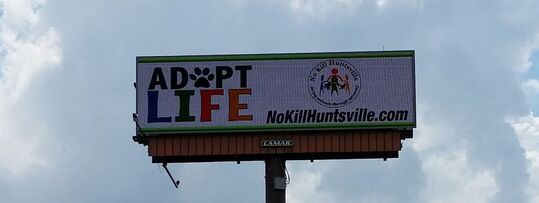|
There's a saying that goes, "the more things change, the more they remain the same." This is especially true when it comes to opposition to animal shelter reform which doesn't seem to change much over the years. I wrote a blog in 2016 called The Burden of Change in which I talked about the arguments by opponents of No Kill animal sheltering that advocates must meet certain requirements in order to speak out about what is happening at tax-funded animal shelters. I shared the blog recently related to some advocates in Columbus, Georgia, who are trying to bring awareness to the animal shelter operation managed by the City of Columbus and opposition to that advocacy. I wrote the blog years ago and thought it worthwhile to touch on this subject again. People who advocate for reform of animal shelters are often told they cannot express their opinions unless they meet certain requirements. The typical push-back from shelter employees, shelter volunteers and some in the animal rescue community is that people have no right to criticize the shelter unless they:
Let's start with the obvious counter to the push-back. Everyone has a right to free speech under the First Amendment to our Constitution. Everyone. When it comes to operations funded by tax-dollars, those operations are inherently subject to public scrutiny and criticism, because the public is paying for those operations. The people employed in tax-funded animal shelters are public servants and are answerable to the public being served whether they like it or not. People complain about municipal functions funded by tax-dollars every day and think nothing of it. Road conditions, timing of traffic signals, response time of police and fire departments, conditions at public parks and venues, zoning regulations. We do not ask people to participate on a repaving crew before they are allowed to complain about a pothole in the road. We do not ask people to help mow at a city park before they are allowed to complain about broken equipment in the park. We do not ask people to help investigate crimes or help put out a fire using a garden hose before they are critical or a police or fire department. Animal shelters are the only tax-funded operations that rely so heavily on volunteers to perform tasks that would otherwise be performed by paid staff. Those volunteers are part of the No Kill Equation and are incredibly important to the well-being of the shelter animals. Volunteers also become the eyes and ears of the community as they interact with staff and the animals. But - news flash - being a volunteer is not a perquisite for free speech and having more volunteers is not a guarantee of a shelter's success. The No Kill Equation is 11 elements, and it is not just about people volunteering. Consider these examples. In one community, people are critical of the regressive animal shelter and are told they cannot have an opinion unless they volunteer. They do. They play with cats, walk dogs, clean kennels, do fundraisers and otherwise perform tasks that would be done by paid staff. They volunteer for months in an effort to help animals but are powerless to address systematic problems which cause the killing of healthy and treatable animals. They are told if they are openly critical of what they experience in the shelter, they will no longer be allowed to volunteer. In another community, people are critical of the regressive animal shelter and are told they cannot have an opinion unless they volunteer. They decide it would be more productive to educate themselves about No Kill philosophies and programs so that they can promote progressive sheltering with elected officials who oversee the shelter operation and educate the public about how their money is being spent in their name. This is what we did in Huntsville, Alabama. We were told we could not have an opinion unless we volunteered. We felt our time was better spent trying to resolve the systemic issues that led to the death in the first place. We were able to help bring about change through advocacy, something we never would have achieved through volunteering alone. There's another saying that says you're damned if you do and damned if you don't. I was criticized for years for not volunteering in the shelter. Once the shelter changed the culture and began saving more lives, I thought it was safe for me to volunteer so I did. I went to the shelter on my lunch break and walked dogs, I created short videos to help place dogs, I did fundraisers to help the shelter purchase supplies like slip leads and I encouraged other people to volunteer. It became immediately obvious to me that I was not welcome in the shelter by the staff and other volunteers due to my advocacy, but I continued volunteering anyway. It was about helping animals and not about me individually. I ultimately stopped volunteering when dogs I was trying to help were destroyed for "behavior" based on reasons that made no sense to me and after I received a nasty message from the volunteer coordinator. She criticized me for only walking what she called the highly adoptable dogs and told me I would "piss myself" if I interacted with the dogs she interacted with daily. I was tempted to respond that as an Army veteran, it takes a lot to cause me to lose control of my bladder but kept that to myself and walked away. I suspect that the city attorney would not have been happy with a volunteer claiming to be put in a dangerous position for the sake of a city department. My point is that I did not volunteer as a matter of principle. Then I did volunteer and even that was not enough to satisfy my critics which is no surprise at all. Nothing I could have done would have been enough for them so I choose to spend my time in other ways which I believe are actually productive. These include screening of city council candidates related to support of No Kill philosophies, data analysis, keeping the public informed of how their money is being spent, meetings with city officials and meetings with members of the city council to promote more shelter standards being codified to preserve the progress that has been made at the shelter and to keep the city from going back to a time when half the animals entering the building were destroyed. When people tell you that you have to do certain things before you have the right to free speech, that is a red flag. And while volunteers are incredibly important to animal shelters and are part of the No Kill Equation, volunteering alone does not reform a broken and antiquated model of animal sheltering. The burden of change is still not mine to carry and it is not the responsibility of people who have the audacity to speak out and ask for better use of tax dollars. You can stop telling us that if we would just be nicer or would just volunteer everything would change. No. Everything changes when those who are responsible for making life and death decisions regarding shelter animals choose life, take responsibility for what happens in their buildings and then invite the public they serve to be part of a new and better future. They can start by educating themselves about the No Kill Equation using this 27-minute video from the No Kill Advocacy Center called No Kill 101. While I do not require people who work in or volunteer in shelters to watch this video as a prerequisite to defending the killing of healthy and treatable animals in shelters, it makes perfect sense for them to use some of the time they would otherwise spend on social media defending the killing to instead educate themselves.
0 Comments
|
AuthorI am an animal welfare advocate. My goal is to help people understand some basic issues related to companion animals in America. Awareness leads to education leads to action leads to change. Archives
July 2024
Categories
All
image courtesy of Terrah Johnson
|




 RSS Feed
RSS Feed